Recent Blogs
Going Big with The Axopar 45
March 11, 2022
How to get the most out of your boat
March 8, 2022
Tarpon time in the Florida Keys
March 8, 2022
Archives
Categories
- Everything Else (28)
- Apparel (9)
- Boating (191)
- Boat Show (5)
- Yacht Tenders (15)
- Charity (1)
- SUP (10)
- Customer Service (1)
- Yacht Toys (8)
- Events (3)
- Places (1)
- Fishing (22)
- Kayak Modding (1)
- Marine Training (1)
- Land Toys (0)
- Watersports (1)
- Amphibious (1)
- Toys (4)
- Submersible (1)
- Propane Gas Engines (2)
- Kayak Fishing (6)
- Diving (1)
- Docks (2)
- Boat Accessories (4)
- Safety (3)
- Kayaking (14)
- New products (3)
- Boat Service (2)
- Engines (32)
- Sailing (1)
- Yacht Brokerage (1)
- Brokerage (1)
- Kayak (1)
How are cabin interiors designed
A boat's interior space can tell a lot about its owner's personality and style in its layout and functionality. Does your boat's interior feel under-utilized, dated, or less inviting than you would like?
This article will discuss planning out a more personal and functional cabin interior by learning how boat interiors are designed and created. You can then make the space your own, feel more comfortable, and serve your needs and match your boating lifestyle.
Docking and Logistics When Traveling to the Bahamas from Florida
Driving Safety
The combination of tropical disturbances and the first cooler cold fronts of the fall make for good lobster diving in South Florida in October, as the tasty crustaceans congregate around shallow coral reefs and sometimes walk in the sand when the water is churned by strong winds.
The Health Benefits of Boating
Many people who visit our marine superstore and marina say they enjoy their time on the water as much as just about anything else in life. From exciting activities like fishing and water sports to relaxing dinner cruises and overnight getaways, boat ownership has a lot to offer for people from all walks of life. Of course, some might hesitate to buy a new boat because they don't want to commit to the cost, or they receive resistance from other important people in their lives who don't think it's a good investment. The truth is that there are several great health benefits to owning a boat.
Landlocked? No Problem!
Boat owners who need boat storage, dockage, and service find it at Nautical Ventures marine center and service yard in South Florida. The main reason experienced boat owners invest in professional storage is to maximize their enjoyment of the experience with superior safety and maintenance. After all, South Florida residents by boats when they want to enjoy themselves, not find new things to worry about! That's where marinas and professional storage come into play.
Lobster Miniseason Results
For most South Florida divers, it took a lot of effort to try to catch a limit of lobsters during the recent miniseason, which was July 28-29.
Get Ready For Lobster Miniseason
Florida’s annual lobster miniseason is July 28-29 this year, which means now is when divers need to make sure that they and their scuba gear are ready for one of South Florida ’s biggest events of the summer.
Goliath Grouper
The Florida Fish and Wildlife Conservation Commission is working on developing a proposal to allow anglers and spearfishers to take goliath grouper, which have been protected in Florida state and federal waters since 1990.
The FWC’s commissioners voted 6-1 to come up with rules and regulations to allow a limited harvest of the groupers, which can weigh several hundred pounds. Reaction to the vote was split.
Anglers who lose hooked fish and divers who lose speared fish when goliaths eat their catch were in favor of the proposal. Charter diving operators who take scuba divers to view and photograph the big fish around artificial reefs were against the proposal.
Summer Slam Kayak Tournament
Kayak fishermen will be targeting dolphin, tuna, kingfish, wahoo and cobia, among other species, for the opportunity to win major cash and prizes in the Extreme Kayak Fishing Summer Slam set for June 19 out of Pompano Beach.
Pontoon or Tritoon - Which one is right for you?
A pontoon boat, as you may know, is a beamy vessel constructed of a spacious platform atop aluminum tubes, or “pontoons.” These boats are quite popular for those who want to enjoy the lake or ocean with their families on a well-rounded boat. While the pontoon boats of the past may have been simple and designed to be basic fishing and cruising platforms, that is no longer the case. Today’s pontoon boats are versatile sports vessels designed with many different applications in mind from fishing, to cruising, to watersports.
Grouper Season Opened May 1
Grouper season opened May 1 after a four-month closure, and many South Florida anglers and divers will head offshore to try to catch or spear what is considered to be one of the region’s best-tasting fish.
Lionfish
April is a tough time for local scuba divers. The lobster season closed on March 31 and doesn’t re-open until August 6. And the seasons for grouper and hogfish, which are among the prized targets of spearfishers, don’t open until May 1.
Packing a boat lunch - Best lunch foods to pack for a day on the boat
Sinking your teeth into a fresh sandwich crafted from a soft hoagie bun with crisp lettuce and tomatoes, filled with thinly sliced deli meat is the epitome of satisfaction during a hot, sandy, salty day on the boat.
Basic Marlinspike Seamanship - the top five knots you need to know to get started on the water
The old adage, “If you don’t know a knot, then just tie a lot,” speaks volumes about recreational boaters and their relationship to marlinspike seamanship. It seems that many mariners underestimate the importance of tying proper knots while out on the water and don’t understand the consequences of tying improper knots. The improper use of ropes while underway or at a mooring can cause vessel damage, a boating accident, serious bodily injury, and even knots that are too tight to untie.
Weekly Fisherman by Steve Waters
Covid and Boating
Boating and COVID-19 – Social Distancing on the Water
Due to the unfortunate COVID-19 pandemic the past few months, a growing sense of uncertainty has been created about what life may look like and how to adapt to 'the new normal'. Amid ever-changing state orders, social-distancing guidelines, it is clear that there will be lasting impacts to the way we previously carried out our daily lives.
This new reality also applies to how we vacation, relax and blow off steam as summer enters full swing. Thankfully, our natural resources are wide open for the recreational activities that have long been a hallmark of the season, and this year, a growing number of people are turning to a longstanding American pastime — recreational boating.
As first-time boat buyers are on the rise, as Americans are recognizing that boating is one of the safest and most accessible atmospheres to enjoy quality time with their loved ones and improve their mental health outlook during the COVID-19 pandemic.
Owning a boat gives people a unique way to get away from it all. That comes in handy now as we’re all trying to maintain social distancing because of COVID-19. Politicians from every state in the United States have acknowledged that boating is a safe social distancing activity, but there are still some precautions to keep in mind. All of the usual guidelines are still relevant on the water, so here are a few things to consider before you plan your next outing and the boating industry’s way forward.
How to Social Distancing While Boating
In May, the recreational boating industry saw an unprecedented increase in PWC sales, which were up 75 percent compared to May 2019.
Shipments of PWCs, outboard engines, wake sport boats, and jet boats increased by a range of 19 to 160 percent compared to April.
As the boating and water sports industry continues to grow on high-demand, manufacturing activity is slowly starting to pick back up and saw impressive gains in May following two months of shutdowns.
Therefore, if you are planning to go out on the water, one of the most important things to consider is how you’re going to limit exposure to other people around. Inviting a lot of guests onto your boat will put you near others and potentially spread disease, so limit your group to people who already live with you. If you live alone or still want to see others, here’s a more visual depiction on how to practice social distancing while boating.
Thankfully, in areas where short-distance travel hasn’t been entirely eliminated we can still do all aquatic activities from the safely on our boats. With that being said, we don’t recommend rafting with other boats or going to a beach where you’ll be close to many people. Your boat is one of the best places to get away from it all, and now is the perfect time to take advantage of that. When you limit your stops and other interactions, you’re doing your part to keep everyone safe.
For example, you may want to pack plenty of gear and supplies at home, so you don’t have to stop on the way to your boat. Sometimes, some degree of contact may be unavoidable.
However in instances such as when you’re fueling the boat or loading it at the marina, you can still do your best to maintain a safe distance and follow other guidelines. You may want to bring some hand sanitizer so you can disinfect yourself after stopping at the marina, fuel station, or loading ramp.
How to Disinfect a Boat
Like many solid surfaces, the parts of your boat could temporarily house the COVID-19 virus. As long as you keep boating between you and your family, your boat in and of itself shouldn’t be any problem. But, what if you want to be extra cautious and disinfect your boat?
It is a good idea to take extra precautions when cleaning your boat, especially if you ever share it with others. Disinfect the boat with disinfectants that have been approved by the CDC recommendations. That means disinfecting surfaces with EPA-approved disinfectants, however, you should remember that some of the approved disinfectants (like bleach or acids) can harm some of the surfaces of a boat. The canvass and vinyls are particularly subject to damage or discoloration, if disinfecting chemicals are left on their surfaces.
With that in mind, it’s a good idea to wash the boat down after disinfecting. So, after disinfecting be sure to give your boat a thorough wash-down. The most important thing overall is simply to maintain a clean boat, to keep things ship-shape.
How to Have Fun Boating During COVID-19
Being extra careful doesn’t mean you can’t still have a ton of fun on the water. Boats make it easy to keep your distance from others while still enjoying yourself. There are even a few ways you can use your boat to improve your social life without putting yourself and others at an increased risk of catching the virus. Here are three of our favorite things to do without getting exposed to others.
1 – Go Fishing
-
Fishing is one of our favorite ways to connect with nature while on a boat. Head out to the water with your family or even by yourself to enjoy some quiet time and look for your next big catch.
- You can also practice kayak fishing, all from the safety of your own kayak. At Nautical Ventures we offer you the largest selection of new and used kayaks under one roof in South Florida. Visit us at our Dania Beach and North Palm Beach Marine Superstores located right on the water for your paddling convenience and for you to even try our products before purchase.
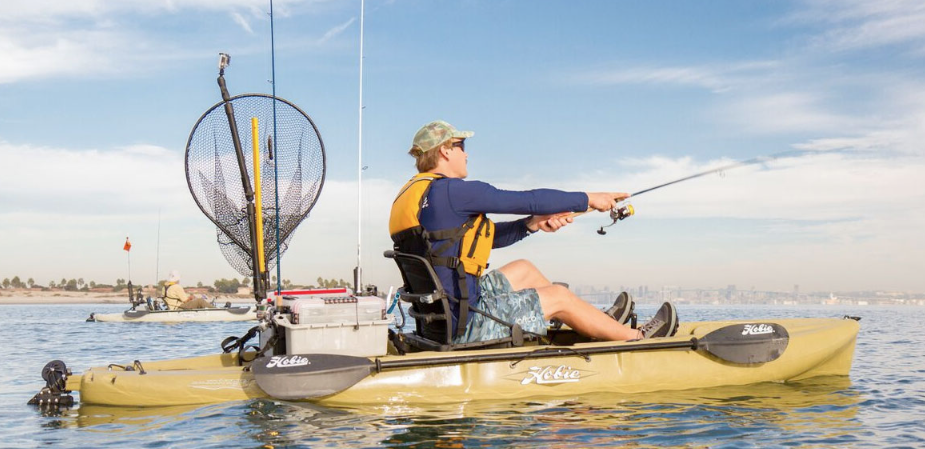
2 – Spend Time With Your Family
-
Relax and unwind by making time for activities on the water. Spending too much time in the house can be overwhelming, but a day on your boat provides a welcomed change of pace. If your boat has a cabin with room to sleep, you may want to plan a safe vacation by spending a night or two aboard.
- There’s no evidence we’re aware of that COVID-19 can be contracted through the water. Still, please respect any restrictions about waters being closed for swimming and other activities. As long as you can do that, get active by going swimming or participating in water sports.
- If enjoy boating, kayaking, fishing, and other marine sports, you'll love Nautical Ventures Marine Superstore. Our "Superstore" is part of our name for a reason! We offer from boats, tenders, kayaks, stand-up paddle boards, inflatables, submersibles, and toys for many other extreme water sports. Our store is a one-stop shop with everything you need to start or continue your aquatic adventures. You can visit us in one of our locations at Dania Beach and North Palm Beach.
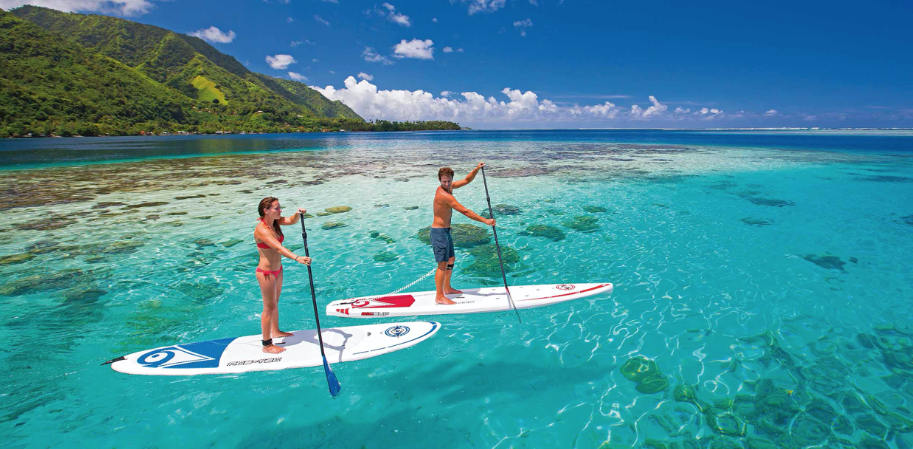
3 – Meet Friends From a Distance
-
If you have friends in the area, plan to meet up with them for a cruise in your boats. You can even set anchor and have a conversation. Just try to keep six feet apart as you would on land, which means it’s best not to raft the boats.
Buy a Boat in South Florida
In conclusion, we boaters love getting out on the water, and part of that love comes from bonding with family, and spending quality time with a loved one, or just enjoying the solitude.
A boater who knows the rules of the water is more confident and ultimately creates a safer, more enjoyable boating experience for everyone. So check on the regulations affecting your locality. Be careful to maintain social distancing practices. And then cast off those lines and feel the wind in your hair—because boating is still the hands-down best way to enjoy living on planet Earth.
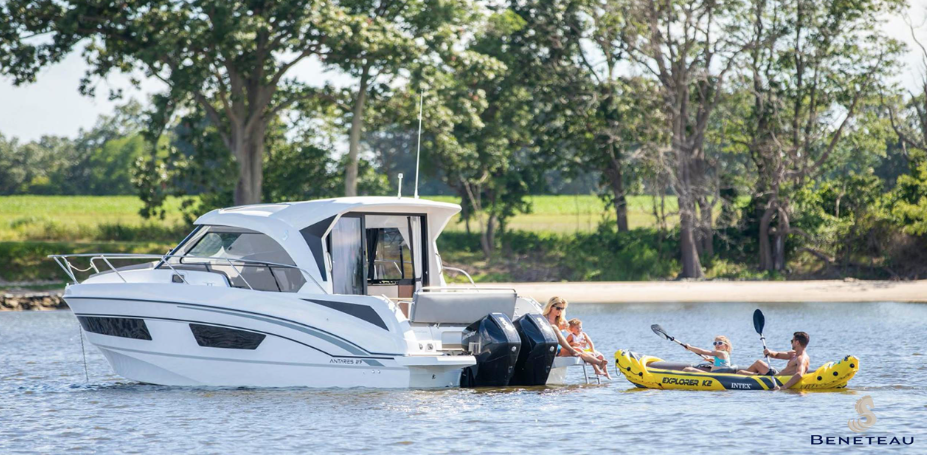
In addition, if you don’t have a boat yet, now might be the time to change that. Visit us at any of our 5 Nautical Ventures Marine Center locations at Dania Beach, Fort Lauderdale, North Palm Beach, Tampa Beach or Sarasota. We look forward to welcoming you!
You can also visit our website www.nauticalventures.com for more information.
Why Outdoor Enthusiasts Choose Nautical Ventures
Outdoor recreation, such as boating and fishing, generates an economic impact of $23.3 billion annually in the state of Florida. Based on the National Marine Manufacturers Association (NMMA) 2018 Boating Economic Impact Study, there are 918,255 registered boats in Florida and 141.6 million Americans go boating each year.
Demo Days: The Story Behind Nautical Ventures Fan Favorite Boat, Kayak & SUP Sale
Dania Beach Nautical Supplies
Palm Beach is a haven for those who love their water sports.
Orion Coolers – Never Lose Your Cool
Orion Coolers are named after the ‘Great Hunter’ Orion, of Greek mythology. Orion’s strength, dominance and timelessness are all traits that are built in to every cooler.
How to Prepare Your Boat for a Hurricane
The Big Chill.
Coolers have come a long way in recent years. Gone are the utilitarian Styrofoam or Plastic insulated ones, the kind if you broke, lost, or left behind at a picnic you didn’t worry about losing.
My Future’s So Bright, I Gotta Wear Shades.
Light consists of two waves, one propagated in the horizontal plane and one in the vertical plane. When light bounces off a flat surface, such as water, the horizontal component is seen as glare. Polarized lenses are made using a special optical filter which absorbs the horizontal component of light and transmits only the vertical component.
The BP Oil Incident of 2010 – Here’s the Drill.
The Interior Department recently laid out a final offshore well-control rule that would require more frequent testing of the devices, swift reporting when parts fail, and retrofitting the equipment with extra shearing rams meant to slash through drill pipe and help seal an open well hole. The rules come nearly six years after the catastrophic blowout of a BP oil well in the Gulf of Mexico killed 11 workers and injured many others aboard Transocean’s Deepwater Horizon drilling rig.
It’s Earth Day. Have Fun Saving the Planet.
OK. This headline is in no way sarcastic. Read it as it is sounding in my head. “Have Fun (while you are at the same time) Saving the Planet.” Since our planet is made up by two-thirds of water, let’s just focus on that part. As a boater and recreational fisherman I’ve been taught to respect our waterways and all the life living within. In fact, most all boaters and fishermen I know following common sense environmental and conservation guidelines. It’s not that difficult and, in reality, has made our sport more enjoyable. A few notable things:
Bug Off!
As boaters, kayakers, fisherman, and all around outdoor people, we are generally well prepared for all things related to our activities. But, and this is a big BUT…





Sign up for Nautical Ventures EMAIL UPDATES & PROMOTIONS

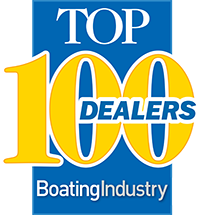

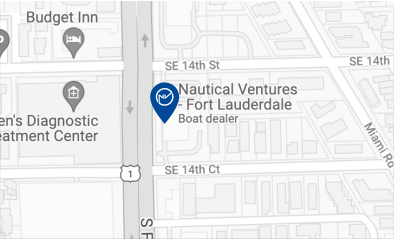



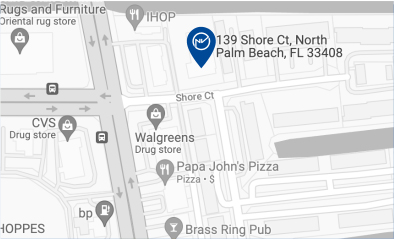

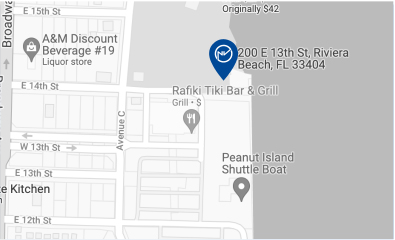





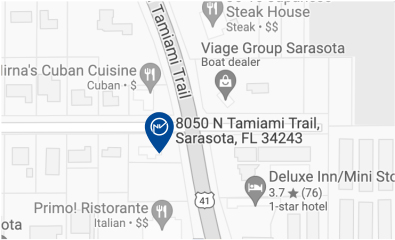



Comments